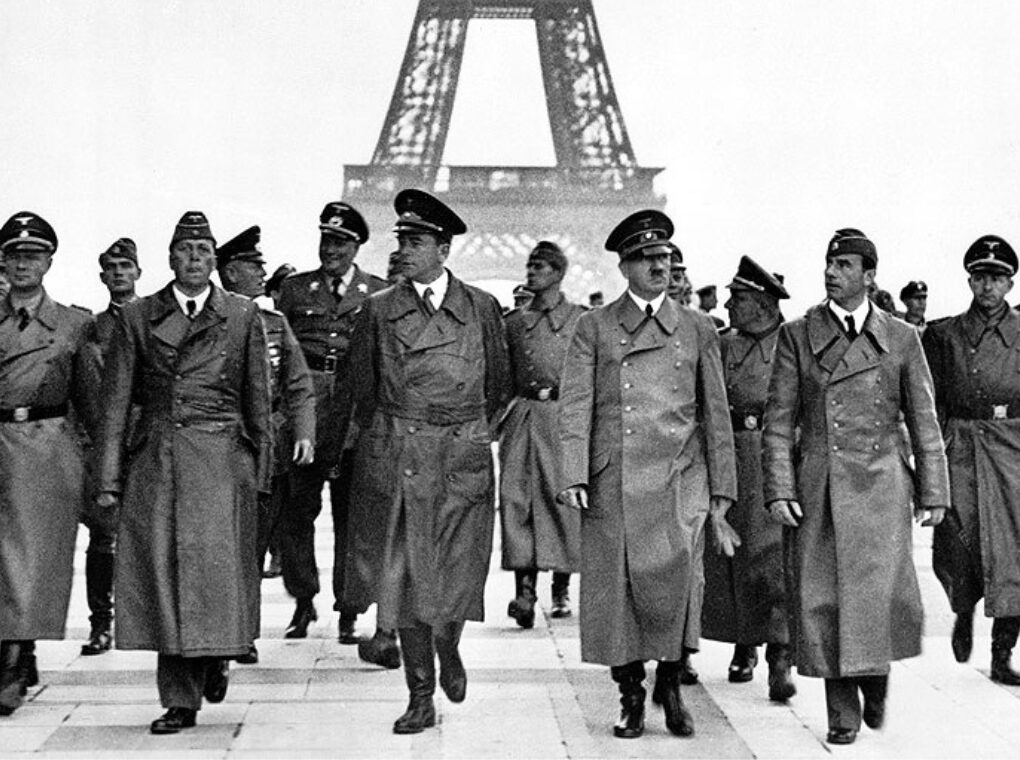Eighty-five years ago today, Nazi troops marched into Paris without resistance, marking one of the most sobering moments of World War II. On June 14, 1940, the City of Light fell — not in fire or rubble, but in silence. It was a moment that signaled not only the military defeat of France but a psychological blow to Europe and the free world.
The German occupation of Paris, long regarded as a symbol of liberty, art, and intellectual freedom, sent shockwaves across the globe. In a matter of weeks, Hitler’s forces had overrun France’s defenses. Paris — once proud and defiant — lay wide open.
“Paris is finished,” General Maxime Weygand reportedly said, as French leadership evacuated the capital. “The enemy will be here tomorrow.”
A Blitzkrieg That Crushed a Nation
The fall of Paris followed a six-week German campaign known for its speed and devastation. After invading Poland in 1939, Germany faced declarations of war from Britain and France. But in May 1940, the Nazi regime launched a new kind of warfare: a “blitzkrieg,” or lightning war, through Belgium and the Ardennes forest — an area the French had believed impassable.
Caught off guard, the French and British forces were quickly outmaneuvered. Despite having more troops and comparable equipment, France’s static defense lines and slow response proved fatal.
By early June, Paris was under threat. The French government fled south to Bordeaux on June 10. Four days later, on the morning of June 14, German troops entered the city unopposed. Hitler, ecstatic over the symbolic victory, ordered the swastika raised atop the Eiffel Tower. Newsreels from the time showed German soldiers marching down the Champs-Élysées in chilling precision, beneath the vacant gaze of Parisian buildings.
Life Under Occupation: Fear, Silence, and Resistance
The German occupation of Paris lasted more than four years. During this time, daily life for Parisians changed dramatically. Jewish families were targeted first. They were required to register, wear yellow stars, and later rounded up in mass arrests. Thousands were deported to Auschwitz and other concentration camps.
Censorship was enforced. Cultural life was tightly controlled. Food was rationed. Public spaces were monitored. People spoke in whispers, wary of informants and collaborators.
Yet amid the repression, acts of quiet defiance began to emerge. Underground networks took shape. Resistance fighters sabotaged rail lines, distributed banned publications, and helped smuggle Jews and Allied pilots to safety. The French Resistance — initially small and disorganized — would grow into a crucial force in the liberation of the country.
Liberation and Legacy
Paris was liberated on August 25, 1944, following a city-wide uprising by the Resistance and the arrival of Allied forces led by General Charles de Gaulle. The liberation was swift and euphoric. Crowds poured into the streets, cheering and waving French flags. But the memory of occupation, fear, and collaboration lingered.
The years that followed were marked by reckoning — with collaborators, with memory, and with national identity. The events of June 1940, in particular, left deep scars and hard lessons about complacency, unity, and the costs of underestimating tyranny.
Remembering June 14
Today, June 14 is remembered not only as the day Paris fell, but as a powerful warning of how quickly liberty can be lost. The silence that greeted German troops in 1940 still echoes — a reminder of the fragility of peace, the dangers of unchecked aggression, and the resilience of a city that, though conquered, never surrendered its soul.
As Europe and the world continue to face modern threats to democracy, the fall of Paris stands as a stark historical marker: a day when the lights dimmed, and the world was forced to reckon with the cost of freedom.
